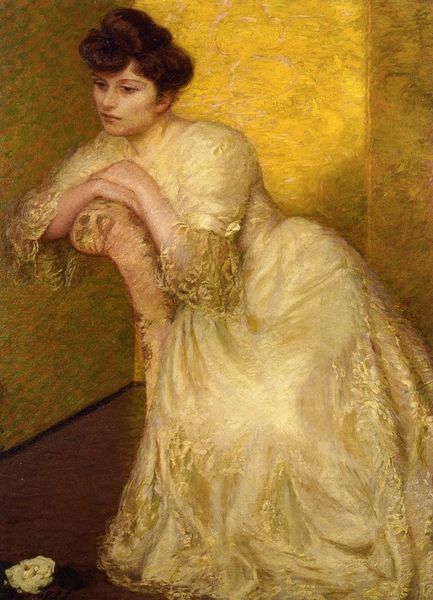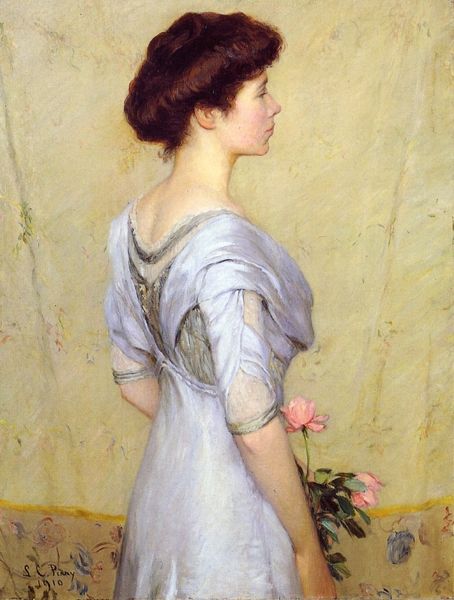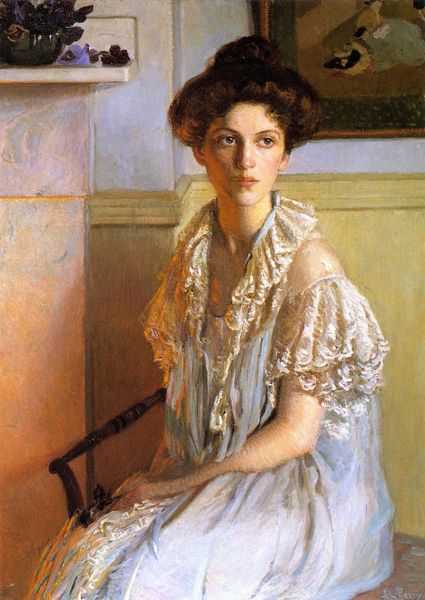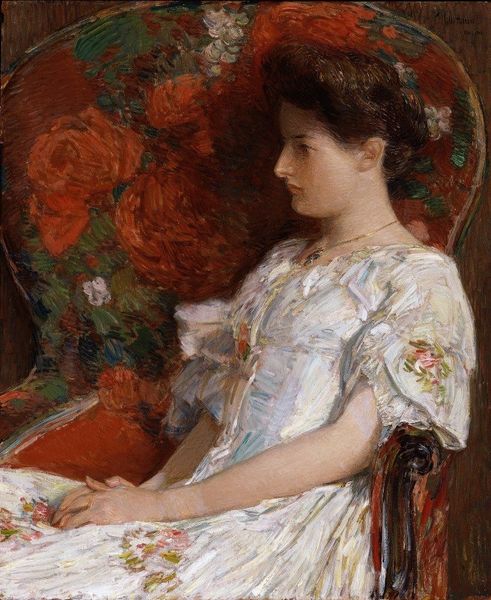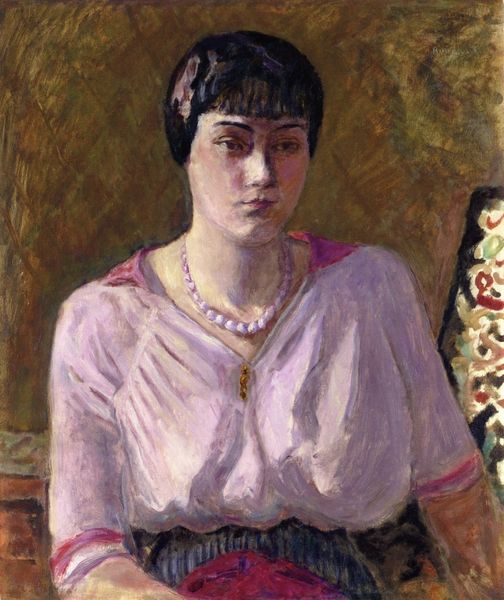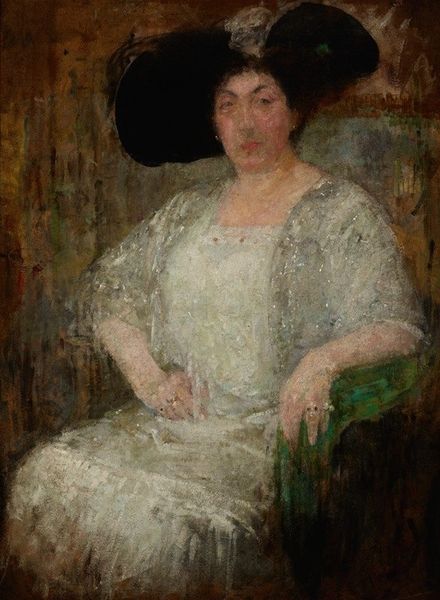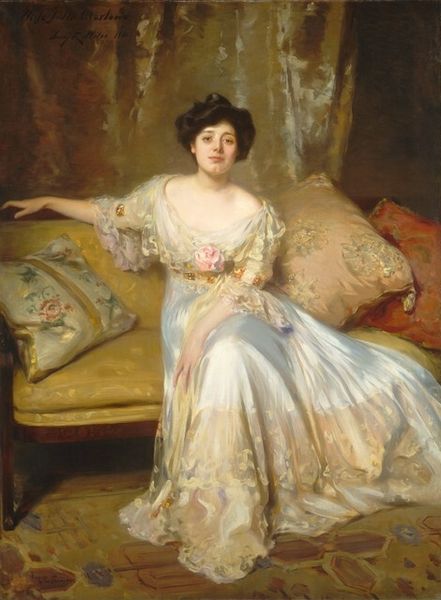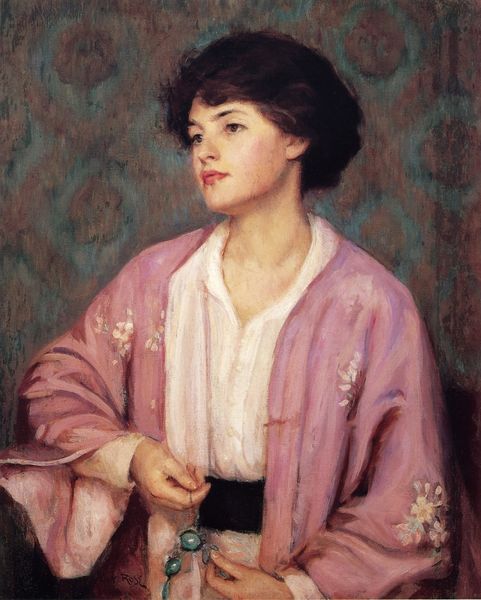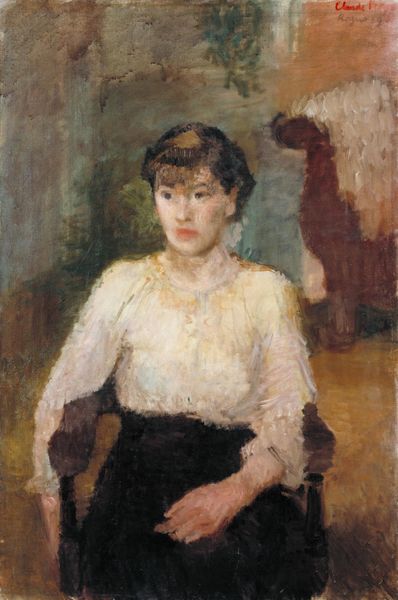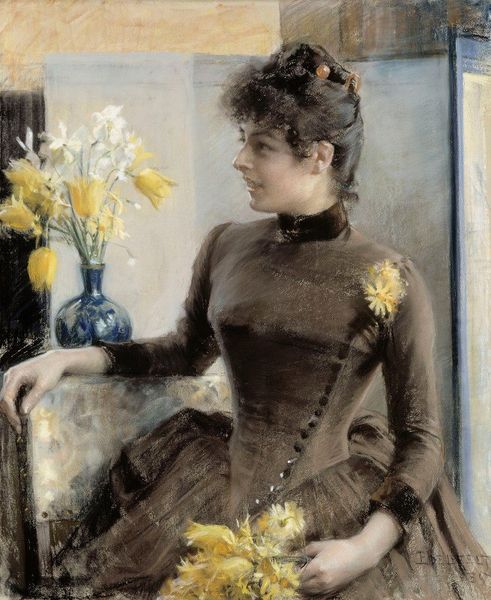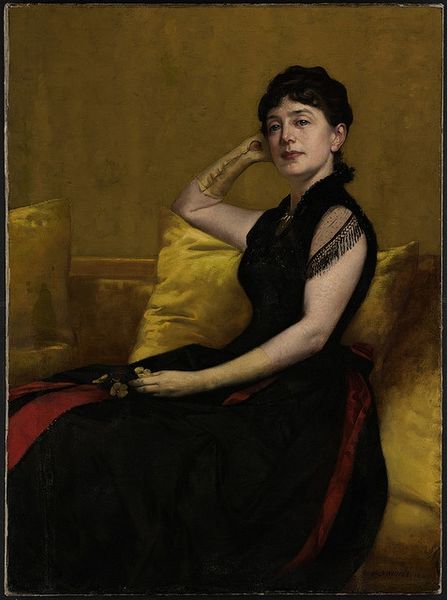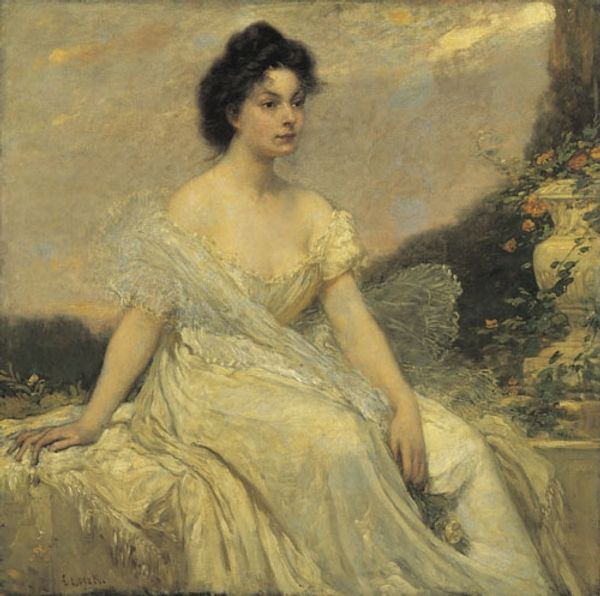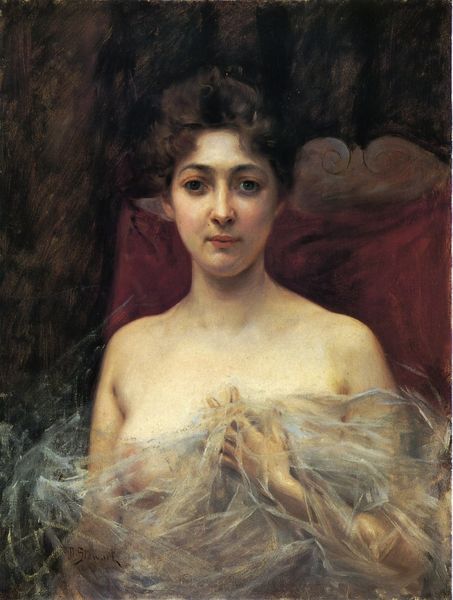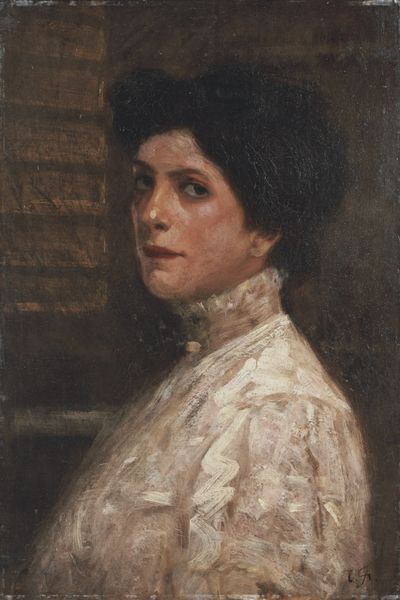
Copyright: Public domain
Curator: Lilla Cabot Perry’s "The Poppy Screen," painted around 1915, captures a moment of serene contemplation. What's your initial take? Editor: My immediate impression is one of delicacy. The wispy fabric, the gentle gaze of the sitter – it all speaks to a certain refined aesthetic. Curator: It's intriguing how Perry positions this piece within the evolving landscape of American art during this period. We have her involvement with the Boston School, of course, and her deep engagement with French Impressionism through her personal connection with Monet. The setting she’s constructed clearly nods to Japonisme. Editor: Absolutely, the emphasis on craft is obvious in the painting's exquisite depiction of surfaces and textures. Consider the treatment of the dress fabric alone - a layering of translucent effects. I'd also like to know about the making of that decorative screen that serves as the backdrop. Is that painting or wallpaper or perhaps silk-screening? Curator: Those floral screens were hugely popular at this time. They were commercially produced items available to those in the middle and upper classes. This type of mass-produced backdrop allows the artist to stage a very intentional narrative regarding domesticity. Editor: It really blurs the lines between art object and prop. And that very subtly calls attention to the social constructs framing femininity itself, don't you think? This is something that women were creating through their own work within the domestic space, an act not often deemed as real "labor" Curator: It does indeed! And look at how Perry reclaims traditional portraiture by infusing it with impressionistic techniques learned directly from Monet. There's a democratic gesture within. The impressionist's brush elevates the everyday. Editor: Very insightful! The textures here do a marvelous job of suggesting a lifestyle, creating a space that has some substance beyond simply aesthetic pleasure. Curator: Yes. By blending artistic movements and highlighting common material culture, Perry captures a society undergoing rapid transformation. Editor: It makes you reconsider the value placed on handcraft versus mass production, doesn't it? It challenges hierarchies even today. Curator: It does! What began as a simple scene reveals itself as a complex statement about the role of women, art, and societal transformation. Editor: Exactly. "The Poppy Screen" compels us to contemplate how social dynamics shape the objects we use and the art we consume.
Comments
No comments
Be the first to comment and join the conversation on the ultimate creative platform.
